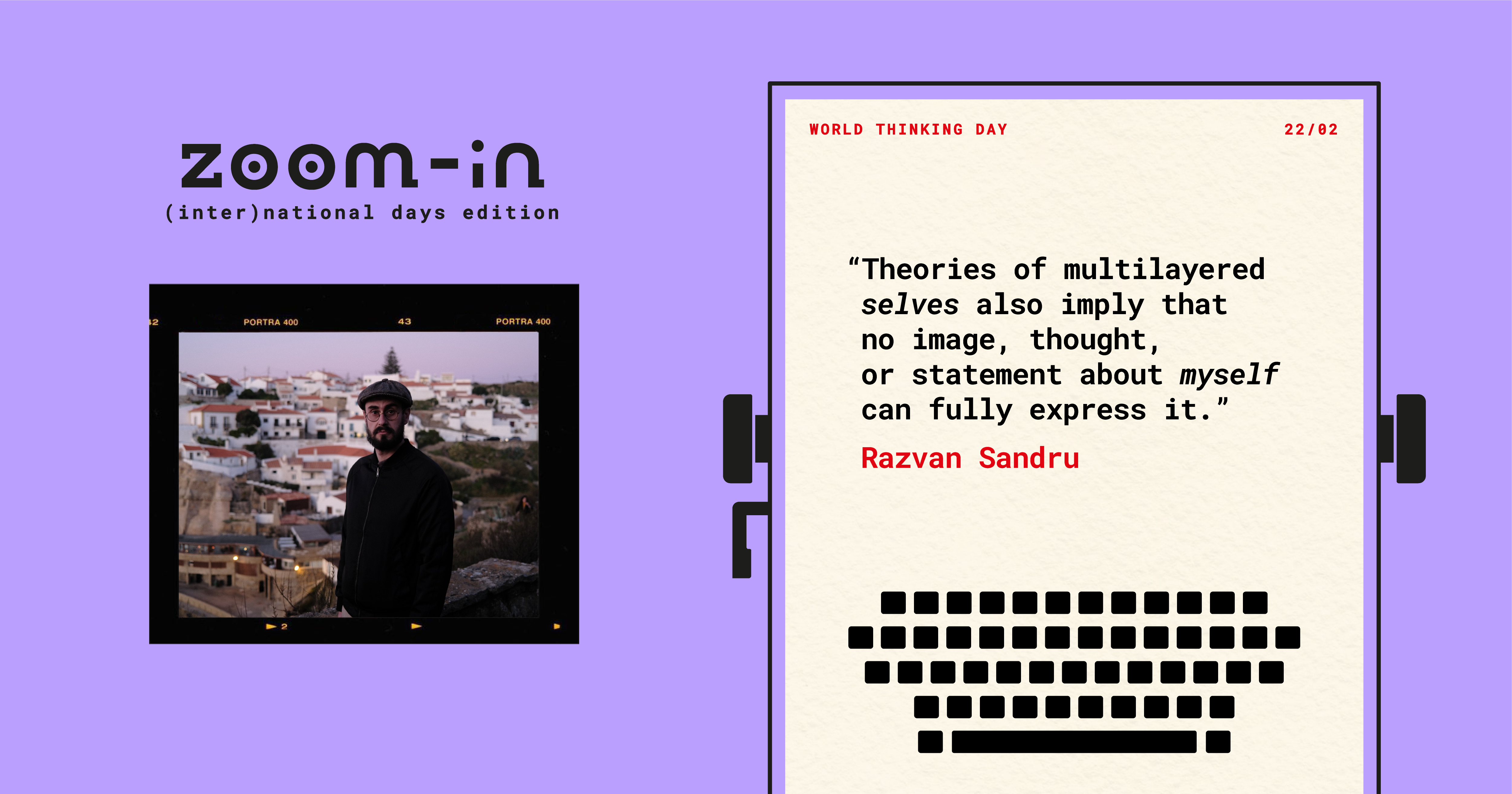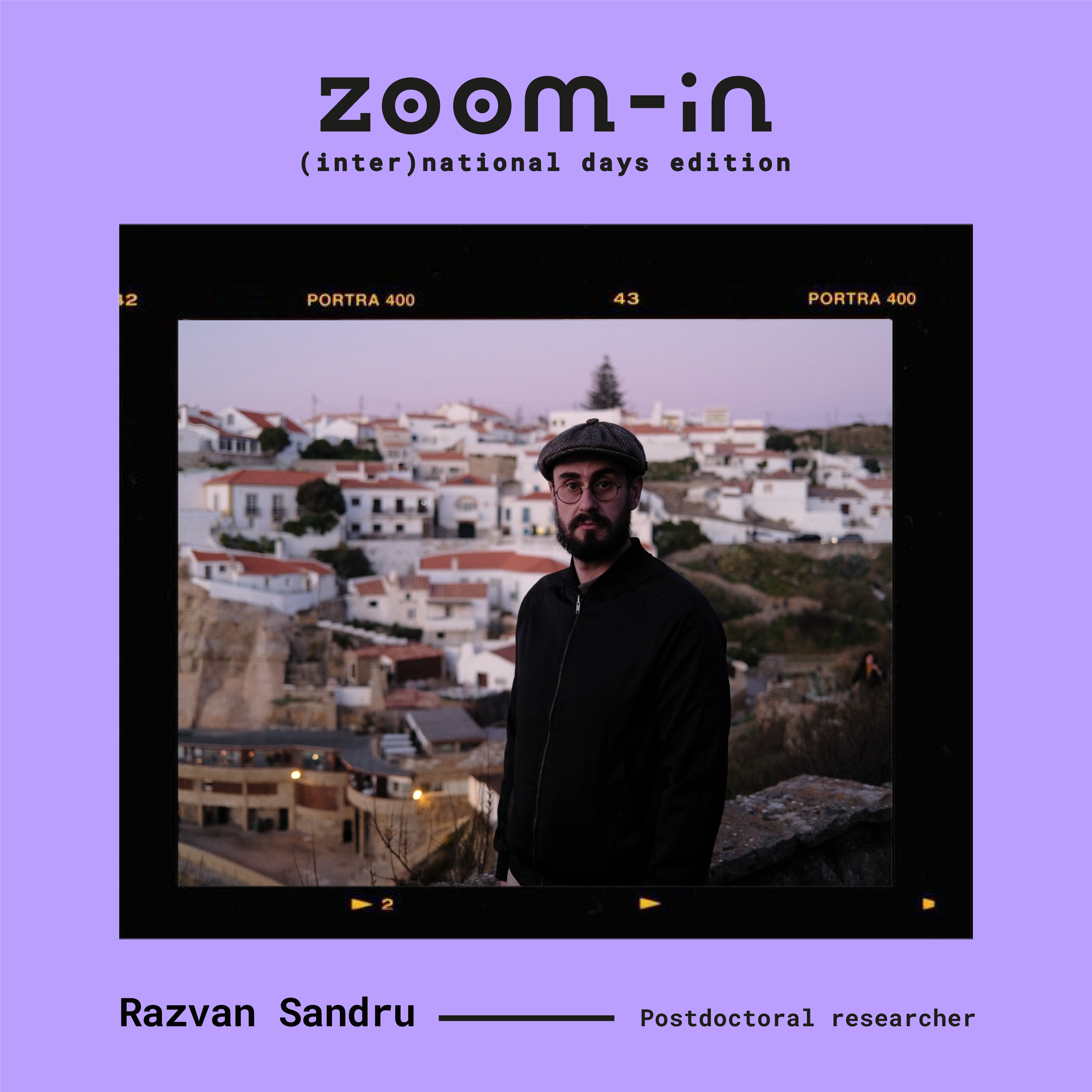February 22 is World Thinking Day, a date originally chosen in 1926 by the Girl Guides which now encourages everyone to take a moment to ponder the deeper questions and stand up for causes that could improve lives around the globe.
Adrian Razvan Sandru is a postdoctoral researcher in the Systems Neuroscience | Mainen Lab. He is specialised in philosophy and particularly in phenomenology: the study of how experience forms and unfolds itself. He is interested in less-than-usual experiences which he thinks can provide novel insight into what it means to relate to oneself and the world in a meaningful way.
Can anything ever really be considered ‘true’ or is everything subjective?
I think this is a fitting question to start with on World Thinking Day. It’s also a controversial question, especially in our post-truth times, but let’s take it step by step and see where it gets us. First of all, I think it's a fitting question because “truth” is a logical operator or a function of thought. By that measure alone, truth is already intertwined with subjectivity. However, we need to pay close attention to what subjective means. While nowadays, subjective is often seen as synonymous with relative, this has not always been the case. In fact, what science deems to be true can be traced back to the philosophies and epistemologies of the 17th and 18th century, especially the Kantian (and later the Neokantian) tradition.
With the Renaissance and later the Enlightenment came also the awareness - or rather the concern at the time - that God or any other absolute entity cannot act as a warrant of truth, as it did in ancient but also medieval times. A new measure of truth had to be discovered, and under the influence of Descartes, philosophers started to look inward.
The main assumption was that thought is the only undoubtable and stable reality immediately accessible to us. Under this assumption, the project of Modernity came to reground and reconstruct the laws of nature and reality, starting from that unshakable fact of our existence: thought. The Kantian proposition was that we all share the same thought structures or cognitive makeup and that, based on that, we all relate to the world around us in more or less the same way. This shared structure of experiencing the world meant then that individual experiences could be communicated with and understood by others, which implied that we can have general statements about the world that hold not only for us individually but for others as well. Such statements could then be considered objectively true when based on an observable phenomenon.
These ideas quickly made their way into scientific thought and came to define something as true if it is observable, repeatable and verifiable, a framework that still defines the way we think today, I believe. With time these ideas were enriched with more embodied or culturally diverse perspectives. Nevertheless, I do think that the concept of truth we operate with today cannot be disentangled from the subjective structures that define us as humans, but are to be taken together. With that in mind I would say there are commonly accepted “truths” based on rigorous observations and shared experiences, but that those truths are always open for debate and change. So, while things can be true, I would say they cannot be absolutely true, otherwise, we as researchers would be superfluous.
If a perfect clone of you were created, right down to the tiniest cellular detail, would it BE you or would it somehow still be missing something?
Again a very timely question. We have all heard about new Large Language Models and AIs making an impact on society through their generative capabilities. With this rise in awareness about AI, questions of sentience or the human-like nature of such systems have become more and more pressing. One of the most popular ways of dealing with these questions is the Turing test, which asks: “If a machine would possess all of the qualities of a human like myself would it be the same as me; would it be a human?”. The story of the Turing test is also interesting. Turing developed the test based on a theory of Leibniz which stated that any two objects that had the exact same qualities would be indistinguishable from each other. One of his examples was two identical leaves. His theory however only holds in a purely logical world. As Kant argued against him, in order to distinguish between any two objects somebody (or something) must make the distinction and that somebody (or something) would have to do it from a certain perspective. Once the issue of perspective comes to play we realise that no two things can occupy the same space and time, no matter how identical they are.The distinction thus can always be made between two completely identical things due to their embeddedness in their respective time-space contexts. The same applies to a hypothetically perfect clone of myself. The clone might share my genetic makeup and resemble me in every single minute detail, but it would occupy a different time and space and by that it would have a distinct perspective from mine. By that measure alone, it would not be fully identical to me.
Is it possible to think about yourself when you are yourself? Are there different levels of you, where a higher level can think about a lower level, but not vice versa?
This question builds really well on the previous ones. I think it is self-evident that we can think of ourselves even as we are ourselves. The mere fact that you asked me that question and I am responding to it is an indication of that very process happening. Now, in order for it to be possible for me to think about myself, I must somehow become the object of my own thinking.
As the object of my own thinking, though, I cannot be thought as the whole me given that the object being thought of doesn’t include the process of thinking itself. This simple operational distinction has led many to think that the self has many layers: one explicitly expressible, one implicitly present in the explicitly expressible one, but also layers that are out of mind and sight. Such theories of multilayered selves also imply that no image, thought, or statement about myself can fully express it. Adding to this that we are exposed to a constant flux of experiences and events that mould our ways of being, I would say the self is an inexhaustible well of exploration.
Whether, in this multidimensional self, one layer is higher than the other I cannot say for sure. I do think, however, of these layers as symmetrical to one another: while abstract thought is good at logically ordering a manifold of perceptions and experiences into communicable statements, emotional layers are good at bringing a more flexible and diverse impression of the world to awareness and embodied, sensorimotor processes are good at tacitly adapting to the ever-changing affordances of our environments. And they all feed into each other, informing and allowing for a plethora of perspectives about ourselves, each one as relevant as the other.
Are some questions best left unanswered?
I don’t think we should shy away from answering questions. I do think, though, that all questions should be considered partially unanswered, inviting us to never stop questioning ourselves, the world around us, and the beliefs we have about it.
Edited by John Lee, Content Developer of the Champalimaud Foundation Communication, Events and Outreach team.



